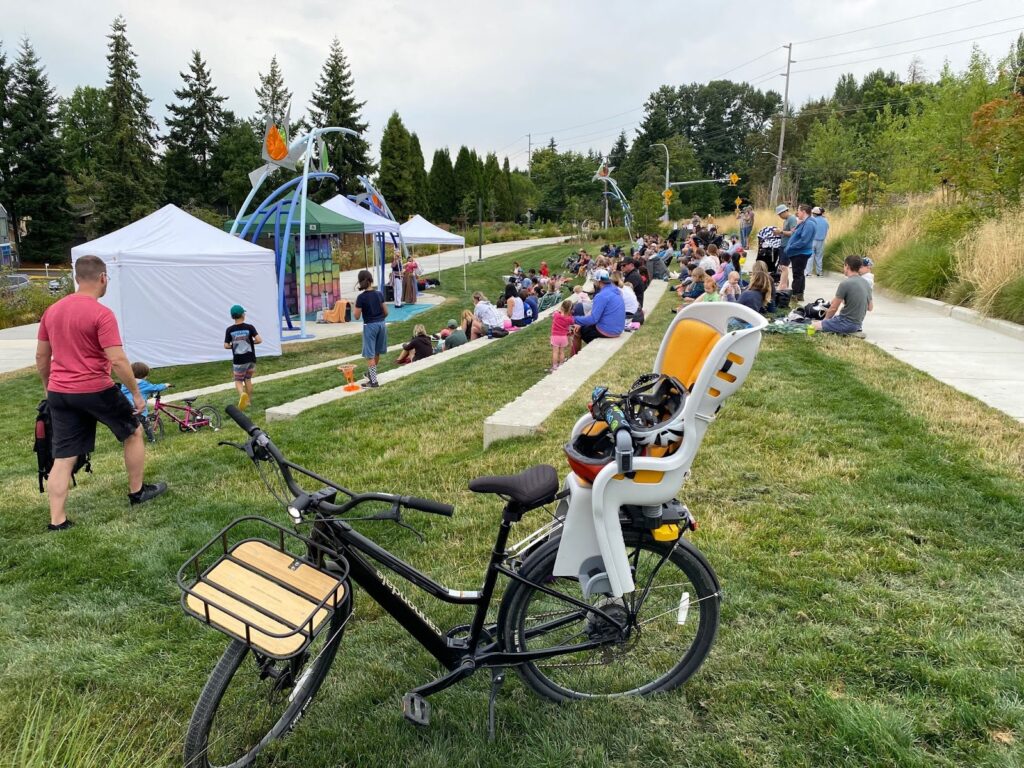E-bikes and King County Regional Trails

In recent legislation passed by the King County Council, e-bikes and e-scooters are now allowed on all segments of the Eastrail, as well as other King County regional trails. With many users already using e-bikes and other “micromobility” devices on our regional trails, this is an important step in acknowledging use that is already happening, and that trails are transit infrastructure. The recent opening of the 2 Line, with its direct connections to Eastrail in Bellevue and future connections in Redmond, will only increase opportunities for multi-modal transit on the Eastside.
Eastrail Partners, as well as other regional advocates, support this policy update. We shared that “being able to use e-wheeled devices on regional trails is integral to accessibility and equity on our King County regional trails.” At the most recent Eastrail RAC meeting, representatives from Eastrail jurisdictions heard from WSDOT staff Barb Chamberlain about e-bikes and micromobility devices, and she emphasized that in addition to recreation and transportation, e-bikes can allow some people with limited mobility to be able to access essential services, get exercise, and more.
The new rules allow for class 1 and 2 e-bikes on Eastrail, which aligns with similar policies on trails in Seattle and with state law. Those who use the Eastrail in Kirkland may know that e-bikes have been allowed on the Cross Kirkland Corridor of Eastrail (CKC) for several years. With this King County code update, formally allowing for e-bikes, the speed limit for the trail will remain 15mph along the entire corridor for all bikes. It continues to be the responsibility of all cyclists to use caution, slow down, and yield to pedestrians. Eastrail Partners is continuing to explore ways to keep the corridor safe for all users as it becomes busier and better connected. We look forward to future partnerships with other nonprofits and King County Parks on education and outreach.
In addition to allowing e-bikes, the Council is considering whether to expand opening hours beyond their current dusk-to-dawn policies. At the June 4 council meeting, Councilmember Balducci, whose district encompasses much of the Eastrail, stressed the importance of expanding hours to allow use for commuting during winter when daylight is much shorter. In Kirkland, the CKC is open to users from 5am to 11pm daily, acknowledging its use as a vital transportation corridor.
For more information about the policy change and how it impacts other regional trails, check out this article from the Urbanist.